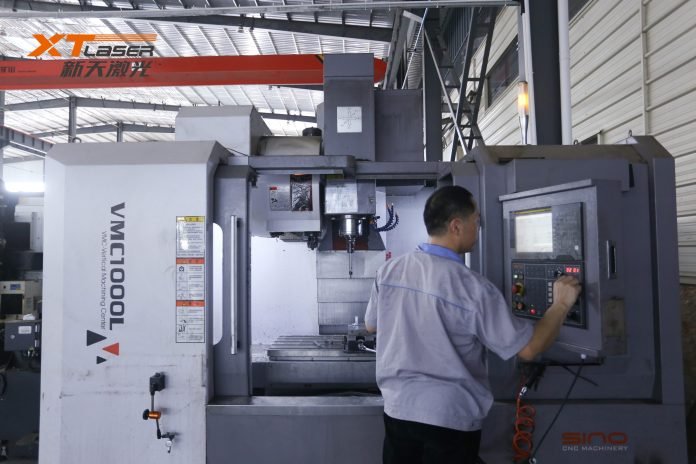XT Laser – Metal Laser Cutting Machine
The quality of a metal laser cutting machine mainly depends on its cutting quality, which is the most direct method to inspect the quality of the equipment. For new customers, when purchasing equipment, they will be required to first check the proofing of the metal laser cutting machine. In addition to the cutting speed of the equipment, sampling also depends on the cutting quality of the sample. So how do you view cutting quality and what aspects should you pay attention to? Below, I will give you a detailed introduction.

What is the cutting quality of the metal laser cutting machine? The following nine standards are indispensable:
1. Roughness: The laser cutting section will form a vertical line. The depth of the line determines the roughness of the cutting surface. The shallower the line, the smoother the cut. Roughness not only affects the appearance of edges, but also affects friction characteristics. In most cases, it is desired to minimize roughness, so the lighter the texture, the better the cutting quality.
2. Perpendicularity: If the thickness of the sheet metal part exceeds 10mm, the perpendicularity of the cutting edge is very important. When you leave the focus, the laser beam will diverge, and the cutting will widen towards the top or bottom based on the position of the focus. The deviation of the cutting edge from the vertical line is several millimeters, and the more perpendicular the cutting edge is, the higher the cutting quality.
3. Cutting width: Generally speaking, the cutting seam width does not affect the cutting quality. The width of the cut has a significant impact only when a particularly precise contour is formed inside the part. This is because the width of the incision determines the minimum inner diameter of the incision. As the thickness of the plate increases, the width of the cutting seam also increases. Therefore, in order to ensure the same high accuracy, regardless of the width of the incision, the workpiece should be constant in the processing area of the laser cutting machine.
4. Texture: When high-speed cutting thick plates, molten metal does not appear in the incision below the vertical laser beam, but is sprayed out behind the laser beam. As a result, curves are formed on the cutting edge, and these curves closely follow the moving laser beam. To correct this problem, reducing the feed rate at the end of the cutting process can greatly eliminate the formation of lines.
5. Minor fault: The formation of burrs is a very important factor in determining the quality of laser cutting. Because removing burrs requires additional work, the severity and quantity of burrs can intuitively determine the quality of cutting.
6. Material deposition: The laser cutting machine applies a special layer of oily fluid to the surface of the workpiece before melting and perforation begin. During the cutting process, due to gasification and the non use of various materials, customers use wind to break the cutting, but upward or downward discharge can also form sediment on the surface.
7. Pitting and corrosion: Pitting and corrosion can have adverse effects on the surface of the cutting edge, affecting its appearance. They appear in the cutting errors that should usually be avoided.
8. Heat-affected zone: in laser cutting, the area near the cutting is heated. At the same time, the structure of the metal will also undergo changes. For example, some metals can harden. The Heat-affected zone refers to the depth of the area where the internal structure changes.
9. Deformation: If the incision causes the part to rapidly heat up, it will deform. This is particularly important in precision machining, as the contour and web of precision machining are usually only a few tenths of a millimeter wide. Controlling laser power and using shorter laser pulses can reduce part heating and avoid deformation.
